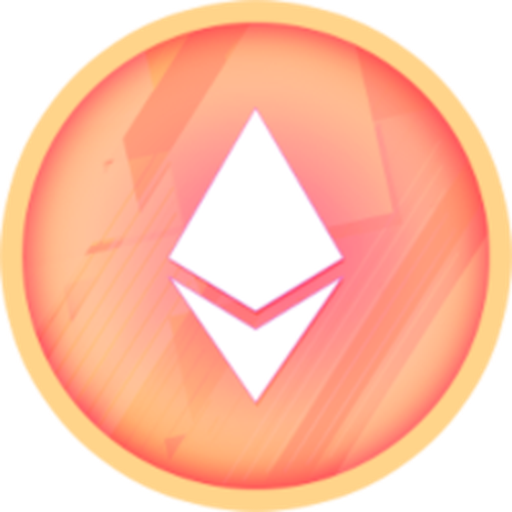Cardano vs Rocket Pool ETH – Price, Market Cap & Performance Compared
Which coin performs better – Cardano or Rocket Pool ETH?
We compare the current price (0.92922 $ vs 5 485.82 $), market cap (33 887 069 173 vs 2 222 537 641) and all-time high (3.09 vs 5 543.86).
Find out which one stands out right now!
Cardano is currently trading at 0.92922 $, while Rocket Pool ETH stands at 5 485.82 $. These cryptocurrencies differ not only in price but also in market presence.
The market cap of Cardano is around 33 887 069 173, and Rocket Pool ETH has about 2 222 537 641. Their respective all-time highs are 3.09 for Cardano and 5 543.86 for Rocket Pool ETH.
Daily trading volume and the 24h price change (9.44473 % vs 13.90092 %) also offer key insights.
Compare all metrics now and see which coin fits your investment strategy best!
Cardano
Cardano is a blockchain platform renowned for its unique approach to scalability and sustainability in the world of cryptocurrencies. It distinguishes itself by utilizing a research-driven, peer-reviewed methodology, ensuring a high level of security and robustness. With its emphasis on smart contracts and decentralized applications, Cardano seeks to create a more inclusive and equitable financial ecosystem.
more informationRocket Pool ETH
Rocket Pool ETH is a decentralized Ethereum staking platform that simplifies the process for individuals looking to participate in Ethereum's proof-of-stake consensus. By allowing users to pool their ETH with others, it reduces the barriers to entry for staking, making it accessible to those who may not have the significant amount of ETH required for solo staking. Additionally, Rocket Pool offers enhanced security through smart contracts and decentralized nodes, ensuring a trustworthy staking experience.
more information

|

|
|
|
|
General Information |
|
|---|---|
|
Title
Cardano
|
Title
Rocket Pool ETH
|
|
Symbol
ada
|
Symbol
reth
|
|
Whitepaper
|
Whitepaper
-
|
|
Website
|
Website
|
|
Community
|
Community
-
|
|
Last Updated
2025-08-22 23:29
|
Last Updated
2025-08-22 23:29
|
Price Data |
|
|---|---|
|
Current Price $
0.92922 $
|
Current Price $
5 485.82 $
|
|
High 24h
0.93846 $
|
High 24h
5 543.86 $
|
|
Low 24h
0.82390 $
|
Low 24h
4 788.53 $
|
|
Price Change 24h
0.08019 $
|
Price Change 24h
669.51 $
|
|
Price Change % 24h
9.44473 %
|
Price Change % 24h
13.90092 %
|
Market Data |
|
|---|---|
|
Market Cap
33 887 069 173
|
Market Cap
2 222 537 641
|
|
Total Volume
2 980 476 814
|
Total Volume
17 913 523
|
|
Market Cap Change 24h
2 985 718 713
|
Market Cap Change 24h
268 068 127
|
|
Market Cap Change % 24h
9.6621 %
|
Market Cap Change % 24h
13.71565 %
|
|
Return on Investment (ROI)
-
|
Return on Investment (ROI)
-
|
Supply and Availability |
|
|---|---|
|
Circulating Supply
36 473 824 934
|
Circulating Supply
405 339
|
|
Total Supply
45 000 000 000
|
Total Supply
405 339
|
|
Max Supply
45 000 000 000
|
Max Supply
-
|
Historical Data |
|
|---|---|
|
All Time High (ATH)
3.09
|
All Time High (ATH)
5 543.86
|
|
ATH Change %
-69.96260 %
|
ATH Change %
-1.09063 %
|
|
ATH Date
2021-09-02 06:00
|
ATH Date
2025-08-22 21:11
|
|
All Time Low (ATL)
0.01925
|
All Time Low (ATL)
887.26
|
|
ATL Change %
4 716.08011 %
|
ATL Change %
518.01216 %
|
|
ATL Date
2020-03-13 02:22
|
ATL Date
2022-06-18 20:55
|
Cardano
Understanding Cardano: A Comprehensive Overview
Cardano, symbolized as ADA, is a well-regarded cryptocurrency that has created waves since its inception. Developed by IOHK and led by Charles Hoskinson, one of Ethereum's co-founders, Cardano seeks to revolutionize the crypto landscape through a research-driven approach to development.
The Technological Edge: Cardano's Unique Features
Cardano differentiates itself with a unique layered architecture designed for optimal scalability and flexibility. It is divided into two layers: the Cardano Settlement Layer (CSL) and the Cardano Computation Layer (CCL). This unique bifurcation allows enhanced security, better transaction processing, and the execution of complex smart contracts.
Cardano uses the Ouroboros consensus mechanism, a proof-of-stake (PoS) protocol that aims to be more energy-efficient than traditional proof-of-work (PoW) systems used by other cryptocurrencies like Bitcoin.
Benefits of Investing in Cardano
A significant advantage of Cardano is its commitment to sustainability and scalability. The project emphasizes security and has engaged global academic experts to peer-review its protocols—a move that lends a layer of credibility not often seen in the crypto sphere.
Cardano's commitment to research-driven development ensures that updates are thoroughly vetted before implementation. This has resulted in a robust, adaptable platform that can keep pace with evolving technological needs and user expectations.
Potential Downsides to Consider
Despite its innovative approach, Cardano has faced criticism for its relatively slow pace of development and adoption. Some argue that Cardano's meticulous methodology, while offering security benefits, has led to lost opportunities in the fast-moving cryptocurrency market.
Additionally, as of now, Cardano's smart contract capabilities are still developing, and it remains to be seen how they will compare to those offered by more established competitors like Ethereum.
A Look at Cardano's Historical Performance
Cardano has seen significant price fluctuations since its launch. The coin reached its all-time high of $3.09 in September 2021 before experiencing a substantial decline. As of the last update, Cardano is trading at $0.348399, which represents an approximate 88.68% decrease from its ATH.
Conversely, Cardano achieved an all-time low of $0.01925275 in March 2020, and despite recent setbacks, it has increased over 1714% from that low value, showcasing its growth potential over the long term.
Future Prospects for Cardano
Looking forward, Cardano's future hinges on its ongoing development cycle and the success of its roadmaps, such as the Alonzo upgrade that introduced smart contracts. The widespread adoption of these features could bolster Cardano's standing as a leading blockchain platform.
Expanding partnerships and real-world applications will be crucial for Cardano's sustained growth. As global interest in blockchain solutions increases, Cardano's focus on building a secure and scalable ecosystem may prove advantageous.
Conclusion
While Cardano offers numerous innovations and potential benefits, it also presents some challenges and risks. Its methodical approach may seem slow to some investors, but its dedication to research-based development can yield a strong, resilient blockchain platform in the long run.
For those looking to invest, staying informed about Cardano's technological developments and market trends will be critical in making educated investment decisions in this volatile yet promising market.
Rocket Pool ETH
Understanding Rocket Pool ETH (rETH): A Decentralized Staking Solution
Rocket Pool ETH, commonly referred to by its token symbol rETH, is a derivative of Ethereum that is part of the Rocket Pool protocol. As a decentralized staking platform, Rocket Pool provides Ethereum holders with an opportunity to stake their assets in a flexible, trustless environment. This write-up explores the unique features, advantages, and challenges of rETH, its historical performance, and the prospects of this innovative staking system.
Key Features of Rocket Pool ETH
Rocket Pool is designed to democratize Ethereum staking by allowing users to stake ETH without needing to manage a validator node. Users deposit their ETH into the Rocket Pool, and in return, receive rETH tokens that accrue rewards automatically. The protocol operates using a network of decentralized node operators, reducing the complexity and barriers involved in traditional Ethereum staking.
Advantages of rETH
One of the main advantages of Rocket Pool ETH is its accessibility. Users can stake their ETH without needing the 32 ETH required by Ethereum 2.0's native staking protocol. This opens up staking opportunities to a broader audience. Moreover, Rocket Pool introduces decentralization to the staking process, mitigating risks associated with centralized platforms.
rETH also promotes liquidity. By holding rETH tokens, users maintain the ability to trade or collateralize their staked assets, offering flexibility not traditionally available with staked Ethereum.
Potential Drawbacks
While Rocket Pool ETH offers numerous benefits, there are potential downsides. The protocol's complexity may pose challenges for casual investors who are not well-versed in blockchain technology. Additionally, as a newer technology, decentralized staking solutions like Rocket Pool carry risks including smart contract vulnerabilities and price volatility.
Historical Performance of rETH
Rocket Pool ETH has experienced significant price fluctuations since its inception. Following its all-time high (ATH) of $4814.31 on December 1, 2021, rETH saw a drastic correction. Its all-time low (ATL) of $887.26 occurred on June 18, 2022. Despite these fluctuations, rETH has shown resilience, recovering by over 221% from its ATL.
With a current price of $2853.09, it remains about 40.67% below its ATH, reflecting broader market conditions and the inherent volatility in crypto markets.
Future Outlook for Rocket Pool ETH
Looking forward, the future of Rocket Pool ETH hinges on the broader adoption of Ethereum 2.0 and the demand for decentralized staking platforms. As staking on Ethereum becomes more widespread, Rocket Pool is well-positioned to attract users seeking a decentralized alternative to centralized staking solutions.
Continued development, network upgrades, and a growing ecosystem around Ethereum could provide further tailwinds. However, investors should remain cognizant of potential regulatory headwinds and technological risks.
Overall, Rocket Pool ETH represents a promising intersection of innovation and market demand, but as with all cryptocurrencies, potential and pitfalls go hand in hand.

